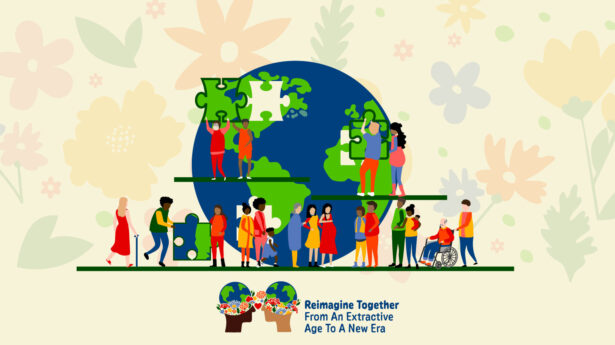The Unitarian Universalist Service Committee advances human rights through grassroots collaborations.
In Their Own Words: Water If You’re Wealthy Enough to Afford It
April 7, 2016
An interview with UUSC Researcher Amber Moulton
In the following interview, Amber Moulton, researcher in UUSC’s Programs, Advocacy, and Action Department, previews UUSC’s upcoming research survey on water affordability.
Why did UUSC choose to focus on water affordability in the upcoming research survey?
Affordability is one of the five main pillars of the human right to water, and it’s one of the biggest challenges to the human right to water in the United States. As Catarina de Albuquerque, the U.N. special rapporteur on the human right to water and sanitation, noted in her 2011 visit to the United States, the United States has done a substantially better job of providing people with clean, safe water than it has providing people with equitable access to affordable water.
The anecdotal evidence and the few studies that have been done on water affordability are really shocking. Roger Colton, one of our partners, has done a California-wide study that showed that if you were to take the standard for affordability, which is essentially 4% of the median household income in an area, and then look at the lowest part of the income spectrum, you find that there are people in some counties who would be paying up to 19% of their household income for their water bill. If you look at an average water bill for a family of four in U.S. major cities, you can do a very simple calculation using the federal poverty level and find that 15% of the population is very likely struggling to pay their water bill — and this is something that is absolutely essential to human life.
What is currently considered affordable is actually extremely inequitable for people in the two lower quintiles of the income spectrum. This is essentially what this water report is about: the problem of saying that you can be healthy, you can have the dignity associated with hygiene only if you’re wealthy enough to afford it. That’s unacceptable. We need to be recognizing water as a human right.
Has the research uncovered any effects of water unaffordability that might surprise people?
One of the things that can happen when people can’t pay their water bill is that their water will be shut off. When people have their water shut off, it makes their homes legally uninhabitable. That can factor into the state’s decisions to remove children and put them into foster care. Sadly and ironically, the system doesn’t currently subsidize or help families who need financial help to pay their bills, but it subsidizes the bills of a foster family. So, it can tear children apart from their parents.
It also has major health consequences. One of the things we saw in the mass water shutoffs in Detroit was that people who had catastrophic and chronic illness, including illnesses where they needed water for their treatment, were cut off from water just like everyone else, without any data being collected about who needed water and who was particularly vulnerable.
In addition, there are any number of socially significant ways that health and hygiene are affected. So if you don’t have water — and we’ve seen specific cases of this in Detroit — you might stop cooking certain types of food that are significant in your culture, like pasta or rice, that use more water. You have people who can’t take showers and baths regularly, and of course there is social stigma that goes with that in workplaces and schools. Plus, women who are experiencing their period certainly also have a particular need for water.
And believe it or not, there’s also the risk of criminalization in many places. In Detroit, we found that people who turned their water back on can actually be charged with a crime. So those are some of the things we’re talking about when it comes to water unaffordability: You can lose your ability to live in your home, you can lose your children, you can lose your freedom.
You’ve mentioned Detroit. Where else is this happening?
We’ve seen mass water shutoffs recently in Baltimore, but this is actually standard operating procedure in many places — shutting off water is not banned. There are particularly egregious examples — communities where people in the lowest quintile of the income spread might be paying 20% of their income for water — but it really is happening throughout the United States. People who are hooked up to small water systems, with less than 100,000 people, as well as people in the largest metropolitan systems can be facing very unaffordable bills.
Certainly anyone who lives below the poverty threshold — or even twice that threshold — very likely is experiencing a struggle when it comes to paying their water bills. And often this is exacerbated by historical trends and trends in austerity measures — like the emergency management policy in Michigan — that are particularly disenfranchising low-income communities of color.
What are some of the recommendations that have come out of your analysis?
There is exciting new national water affordability legislation that will be proposed by NACLAWater [National Coalition for Legislation on Water Affordability], which UUSC is part of. The proposed legislation will push the need to create real means of water affordability in the United States. In addition, there’s the immediate need for mass water shutoffs to be discontinued and prohibited in the future. We also want to push for water policies that bill families based on actual household income, which could include creating rate structures that provide discounts for low-income people or instituting a cap of 2.5% of monthly household income for all services. We also want decriminalization, protections for vulnerable populations, and comprehensive data collection.

